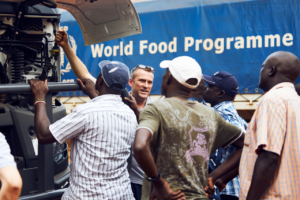We use cookies to help you navigate efficiently and perform certain functions. You will find detailed information about all cookies under each consent category below.
The cookies that are categorized as "Necessary" are stored on your browser as they are essential for enabling the basic functionalities of the site. ...
Necessary cookies are required to enable the basic features of this site, such as providing secure log-in or adjusting your consent preferences. These cookies do not store any personally identifiable data.
Functional cookies help perform certain functionalities like sharing the content of the website on social media platforms, collecting feedback, and other third-party features.
Analytical cookies are used to understand how visitors interact with the website. These cookies help provide information on metrics such as the number of visitors, bounce rate, traffic source, etc.
Performance cookies are used to understand and analyze the key performance indexes of the website which helps in delivering a better user experience for the visitors.
Advertisement cookies are used to provide visitors with customized advertisements based on the pages you visited previously and to analyze the effectiveness of the ad campaigns.
Renault Trucks is set to continue its transfer of expertise to the UN agency for the next five years by training its teams, particularly in Africa. The aim is to make it easier for the World Food Programme to run and maintain its fleet of trucks on the ground, helping reach those in need around the world with vital food and other assistance.
The World Food Programme (WFP) operates over 900 trucks and relies on 5,000 vehicles around the world to carry out its operations every year. The world’s largest humanitarian organisation is often the first to dispatch aid to crisis areas, using food and other assistance to pave the way to peace, stability and prosperity. WFP is leveraging Renault Trucks’ expertise to improve the conditions and availability of trucks used in countries across Africa to reach vulnerable communities.
Confident in its knowledge of extreme terrain, the professionalism of its employees and its high-quality equipment, Renault Trucks committed to an initial partnership in 2012, offering the most experienced among its employees the opportunity to train WFP teams on the ground.

Renault Trucks is set to continue its transfer of expertise to the UN agency for the next five years by training its teams, particularly in Africa. The aim is to make it easier for the World Food Programme to run and maintain its fleet of trucks on the ground, helping reach those in need around the world with vital food and other assistance.
The partnership between the two organisations has just been extended until 2026, with a renewal of the itinerant system set up by Renault Trucks, consisting of two trucks equipped to serve as mobile training units. Renault Trucks is therefore passing on its expertise, not only to help ensure the availability and optimal performance of WFP’s trucks, but also to support the development of technical skills at local level and improve road safety in West Africa.
A training catalogue has been created, featuring modules on truck mechanics for technicians and workshop managers, fleet management for truck fleet managers, and eco-driving for drivers. In addition to World Food Programme staff, government officials, NGOs, other UN agencies and private transporters are also to receive truck maintenance training.
Under the renewed partnership, Renault Trucks will also be supporting the establishment of a permanent technical training centre in Accra, Ghana, with two classrooms for face-to-face sessions and access to IT equipment for online trainings.
Paul, Sylvain, Benoît and Ahmed are among the Renault Trucks employees that decided to leave their daily routine behind for a while to help make a difference, experience a different reality, and provide their expertise to those who work daily with trucks within WFP.
There is real enthusiasm for volunteering among Renault Trucks’ teams. It reflects a genuine desire on the part of employees to engage and contribute to their company’s vision to a fairer world. “I went to Ethiopia as part of a two-man team to train mechanics and workshop managers in how our vehicles function, to help them maintain the trucks as effectively as possible,” explained Sylvain Thiercelin, a vehicle test project manager. “What I take away from this experience is the quality of the exchanges, the sharing and the human adventure. We went there with a degree of humility, wondering what we could teach them, and in the end, just being there helped enormously. We managed to answer a lot of questions and learnt just as much, if not more, about their way of life. It was an amazing experience.”
The next training duo from Renault Trucks is set to leave for Ghana in July.
For several years now, Renault Trucks’ commitment to the World Food Programme has been yielding results for WFP and for those most in need. There is lower turnover in the organisation’s fleet teams, greater engagement among employees and a clear reduction in maintenance costs and vehicle losses. Locally, in the field, teams are now better equipped to choose the right vehicle for a given terrain. This translated into more effective and timely support to the most vulnerable.
“Counting Renault Trucks among our partners for the next 5 years to establish a Technical Training Centre in West Africa is key to transfer this expertise and train not only WFP employees, but also a range of other actors in the transport sector, to positively impact transport management in the region,” said Jean-Francois Milhaud, Head of the WFP Global Fleet Unit.
Improvements in the cost per kilometre of maintenance per vehicle have resulted in savings of $1.5 million.
Since 2012, the year of the 1st partnership:
WFP does not endorse any product or service.